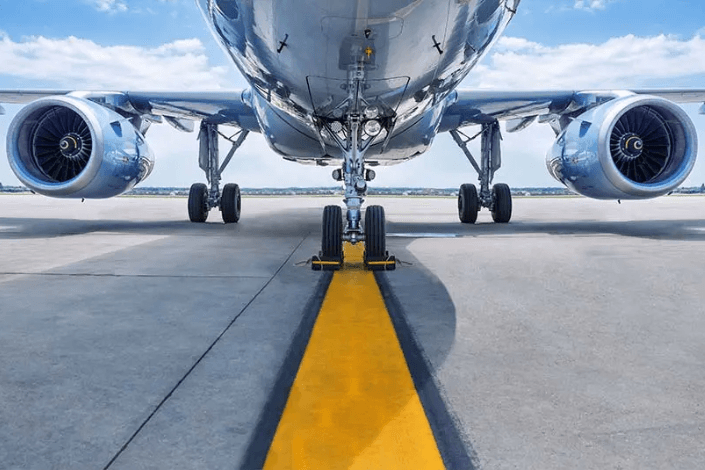Where travel agents earn, learn and save!
News / Airline industry claims traveller safety at risk with proposed passenger rights rules
Aviation companies express concern that stricter rules aimed at improving customer compensation and service could jeopardize passenger safety

Aviation companies are making the pitch to Ottawa that stricter rules designed to boost customer compensation and improve service could put passenger safety at risk _ an argument consumer advocates reject as “ridiculous.”
The push, made in regulatory submissions and meetings on Parliament Hill, comes on the heels of sweeping reforms to the passenger rights charter announced in April and currently being hashed out by Canada’s transport regulator before going into effect next year.
The changes appear to scrap a loophole through which airlines have denied customers compensation for flight delays or cancellations when they were required for safety purposes. The sector wants that exemption restored, and says pilots shouldn’t feel pressured to choose between flying defective planes and costing their employer money.
“We want our pilots to be entirely free from any financial consideration when they take a safety-related decision,” WestJet chief executive Alexis von Hoensbroech said in a video chat from Ottawa this week, where he was meeting with federal ministers on the reforms. The Air Line Pilots Association raised similar concerns in a submission to the Canadian Transportation Agency.
“Regulation should never be punitive for safety decisions,” the CEO said,adding that the would-be changes will drain carriers of cash after a financially devastating COVID-19 pandemic.
In the European Union, however, where rules and precedents comparable to the impending passenger rights charter are in place, flight safety remains uncompromised, advocates say.
“Did it make it less safe to fly in Europe? I don’t think so,” said Sylvie De Bellefeuille, a lawyer with the advocacy group Option consommateurs.
The EU code came into force nearly two decades ago, shored up by court rulings that require compensation even for trip disruptions caused by safety concerns, such as mechanical issues. No major accidents involving EU-registered planes have occurred in commercial aviation since 2015.
“It lays pretty ill in the mouth of the industry to say that if you … take away that excuse, then we will therefore fly unsafe planes,” said John Lawford, executive director of the Public Interest Advocacy Centre.
“I’m surprised that they would have the chutzpah to say that.”
Air Passenger Rights advocacy group president Gabor Lukacs called the claim “ridiculous,” and NDP transport critic Taylor Bachrach also slammed the argument.
“It’s quite alarming that the airlines would suggest that if the government holds them to a higher standard of customer care, there’s going to be a risk to passenger safety,” Bachrach said in a phone interview from northwestern B.C.
Nonetheless, organizations from Nav Canada to the International Air Transport Association _ as well as Canada’s main pilots union _ maintain that safety will be jeopardized unless delays due to malfunctions or mechanical issues are exempted from what the Atlantic Canada Airports Association called “punitive measures.”
“It adds operational pressure on the pilots, who are already dealing with enough pressure,” said Jeff Morrison, who heads the National Airlines Council, which represents carriers including Air Canada and WestJet.
Proposed changes under the Air Passenger Protection Regulations would not exempt flight disruptions that are caused by “normal … technical problems” from cash compensation given to customers. However, big delays caused by “airport operational issues” or “hidden manufacturing defects” would be considered beyond the airline’s responsibility _ and thus exempt from compensation _ under the would-be reforms, most of which are still months away from being finalized.
The first phase of the overhaul comes into effect on Saturday, kicking off a more streamlined complaints process that currently creaks under the weight of more than 57,000 complaints.
That backlog has continued to mount despite a slowdown in filings, which can take up to two years for the regulator to process. The new system will be managed by “complaint resolution officers” _ 40 have been hired, with 60 more expected to be trained over the next year, according to the agency.
Among the provisions slated to kick in next year are fees imposed on airlines by the transport agency to recover some or all of the cost of handling those complaints. If a passenger files one due to a flight disruption or denial of boarding, the reformed rules put the onus on the airline to prove the move was for reasons outside it’s control, such as bad weather.
Airlines, airports and local chambers of commerce make the case that regional routes would be pricier for customers _ or simply cancelled outright _ as slim profit margins would tip into red ink amid the higher costs from complaints and fees.
“There’s always a trade-off,” Morrison said.
The average profit on large airlines amounts to less than $10 per passenger, said WestJet’s CEO.
“If we have to compensate a passenger, it’s $1,000,” von Hoensbroech said, citing the maximum amount. He noted that WestJet’s average one-way ticket price hovers around $200. “You need many, many flights to recover.”
In Europe, compensation for flights of less than 1,500 kilometres are capped at 250 euros per passenger, or about $359 _ far below the ceiling in Canada, where the rules factor in airline size but not trip length. The $1,000 cap takes an outsize toll on regional markets “that are in large part served by shorter domestic flights,” according to the Regional Community Airports of Canada.
Advocates Lawford and Lukacs characterized the groups’ warnings about routes to smaller or far-flung communities as tantamount to “blackmail,” while Bachrach framed the notion of pitting sturdier customer rights against regional flights as a “false choice.”
Lukacs suggested subsidies to support regional trips, whose fares have shot up over the past four years even as ticket prices on busier routes fell.
Von Hoensbroech also said accountability for flight disruptions, including the cost burden, must be shared across the industry, not borne by airlines alone _ an argument some advocates are receptive to, given the highly integrated nature global air travel that hinges on players ranging from baggage handlers to security and border agents to air traffic controllers.
The Canadian Transportation Agency is currently working on a draft of the new Air Passenger Protection Regulations, expected to be published this year before the new charter is implemented in 2024.
“The ultimate goal of air passenger protection shouldn’t be to get compensation to passengers; it should be to incentivize airlines to treat passengers better,” Bachrach said.











